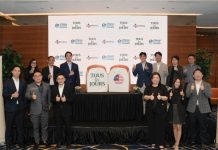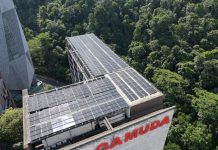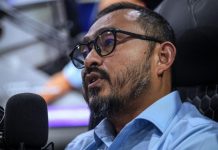Asian chipmakers are rushing to expand their production capacity to meet a global shortage that has been acutely felt by carmakers, but the firms warn that the supply gap may take many months to plug as they struggle to keep up with strong demand.
Automakers from General Motors to Stellantis and Honda Motor are shutting assembly lines due to the shortages, which in some cases have been exacerbated by the former U.S. administration’s sanctions against Chinese chip factories. Some firms have also furloughed staff.
Eight-inch chip manufacturing plants owned mostly by Asian firms, which tend to make older, less sophisticated chips, are particularly under strain primarily due to under-investment in recent years. The majority of such factories are used to make auto chips.
Consumer demand in China, especially for cars, has snapped back unexpectedly quickly from the coronavirus crisis, and orders for products such as laptops and mobile phones in regions still struggling with pandemic restrictions, such as Europe and the United States, have also picked up.
The global concerns about the chip shortage were underscored at recent quarterly earnings calls held by companies from Taiwan Semiconductor Manufacturing Co Ltd (TSMC) to South Korea’s SK Hynix.
“We are under great pressure now,” said Zhao Haijun, co-CEO of China’s top chipmaker Semiconductor Manufacturing International Corp, which last week announced plans to expand capacity by 45,000 wafers per month at its 8-inch fabrication plant this year.
However, the company cautioned that the capacity boost would not occur quickly due to longer lead times for equipment procurement, as it grapples with supply chain disruptions caused by sanctions imposed by the former Trump administration.
“We basically have at least one video conference a day with a customer on how we can increase capacity, what adjustments we can make on products,” Zhao said.
TSMC, the world’s top contract chipmaker, said it was “expediting” auto-related products through its wafer fabs and reallocating wafer capacity and now expects to lift capital spending on the production and development of advanced chips to between US$25-28 billion this year, as much as 60 percent higher than the amount it spent in 2020.
South Korea’s SK Hynix, the world’s No. 2 memory chip maker, said it was speeding up plans to relocate its 8-inch facilities to China, which is expected to reduce costs, in light of the 8-inch boom. The company wants the relocation to happen “as soon as possible” rather than over an initially planned two-year period.
Renesas Electronics Corp said on Monday it is in talks to buy Anglo-German chip designer Dialog Semiconductor for about US$6 billion in cash, as the Japanese chipmaker looks to take advantage of the growing demand for automotive chips. Renesas is due to release its latest result on Wednesday.
The combination of supply shortages and surging demand has put pressure on prices. UMC expects overall chip prices to rise 4-6 percent this year due to supply constraints set to last for another few quarters, while Renasas told Reuters that they have been negotiating for a 15 percent increase on auto chips and between 10 percent to 20 percent for other chips.
Japanese companies with automotive semiconductor related business have so far provided few details related to any shortages or how customers have been affected.
“We are working hard with semiconductor manufacturers, and the supply crunch should ease as capacity growth catches up this summer,” Yasushi Matsui, the chief financial officer at key Toyota Motor Corp part supplier Denso Corp, said last week.
Fang Leuh, the chairman of Vanguard International Semiconductor Corp, whose biggest single shareholder is TSMC, said the demand frenzy “would not last forever”.
“Sooner or later it will overheat, there will be some come down or set back.”
























